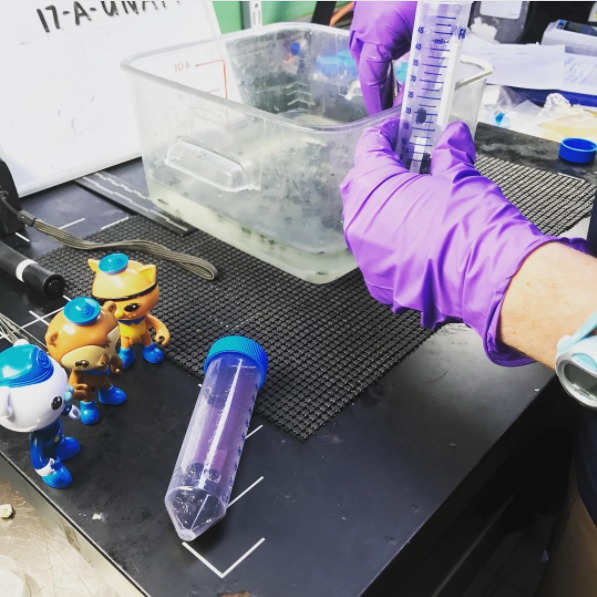Transcript below.
Tag: oysters

Foghorn (A Call to Action!)
- The kids are alright. I’m suing the U.S. government for causing the climate change crisis #YouthVGov.
- This fleet of underwater robots will help citizen scientists make the case for ocean conservation. Find out how you can get yours through the SEE Initiative!
Flotsam (what we’re obsessed with right now)

- This comic comes at you like a kick in the teeth. Can Climate Science Be Rendered Conservative-Friendly? How to pitch environmentalism to climate change deniers.

Cuttings (short and sweet): Follow COSEWIC, the Committee on the Status of Endangered Wildlife in Canada, on twitter. ‘Scallop wars’: UK offers olive branch as French navy threatens to act. By Pippa Crerar, for the Guardian. Brexit is complicating some existing relationships between the UK and European nations, including some fishing rights issues. Don’t worry, … Read More “Scallops, barnacles, and oysters- oh my! Thursday Afternoon Dredging, September 6th, 2018” »

Foghorn (A Call to Action!)
- Melissa Márquez is fundraising to participate in a women-in-science leadership retreat that culminates in a 2.5 week trip to Antarctica. Help her out! Or back her Patreon!
- The scandal-plagued, utterly ineffective, Scott Pruitt is out, just days after an American patriot told him exactly how she felt about him in a restaurant. Good.
Flotsam (what we’re obsessed with right now)
- Investing in indigenous communities is most efficient way to protect forests, report finds. This should surprise no one but it often does.
- Explore the deep waters around Kiribati with OpenExplorer!
The Levee (A featured project that emerged from Oceandotcomm)
- Virtual Reality Preserves Disappearing Land: Coastal communities are capturing their cultures and landscapes in virtual reality before sea level rise steals them for good.
- Where Did the Oil Go In the Gulf of Mexico? a storymap.

Foghorn (A Call to Action!)
- Sign up for Make for the Planet Borneo and help push forward the next generation of conservation technology!
- Announcing the Con X Tech Prize for Hacking Extinction! Apply for funding to create a working hardware prototype and win up to $20,000 in awards.
Flotsam (what we’re obsessed with right now)
- This is a totally ordinary, not at all alarming, call for government bidders on a contract to build “new systems that employ natural or engineered marine organisms as sensor elements to amplify signals related to the presence, movement, and classification of manned or unmanned underwater vehicles.” They even adorably call these Persistent Aquatic Living Sensors PALS. Normal!
- Here’s a video of anglerfish mating, because anglerfish are beauty.
- This week in science and conservation slowly, awkwardly coming to terms with their racist history: For Decades, Our Coverage Was Racist. To Rise Above Our Past, We Must Acknowledge It and Environmentalism’s Racist History.
- Scientists in Survival Mode: After a disastrous hurricane season, scientists in the storms’ pathways struggle to return to work.
The Levee (A featured project that emerged from Oceandotcomm)
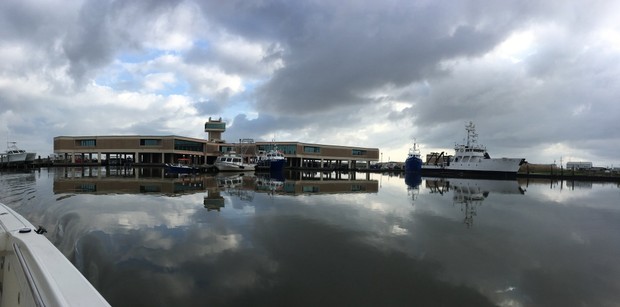
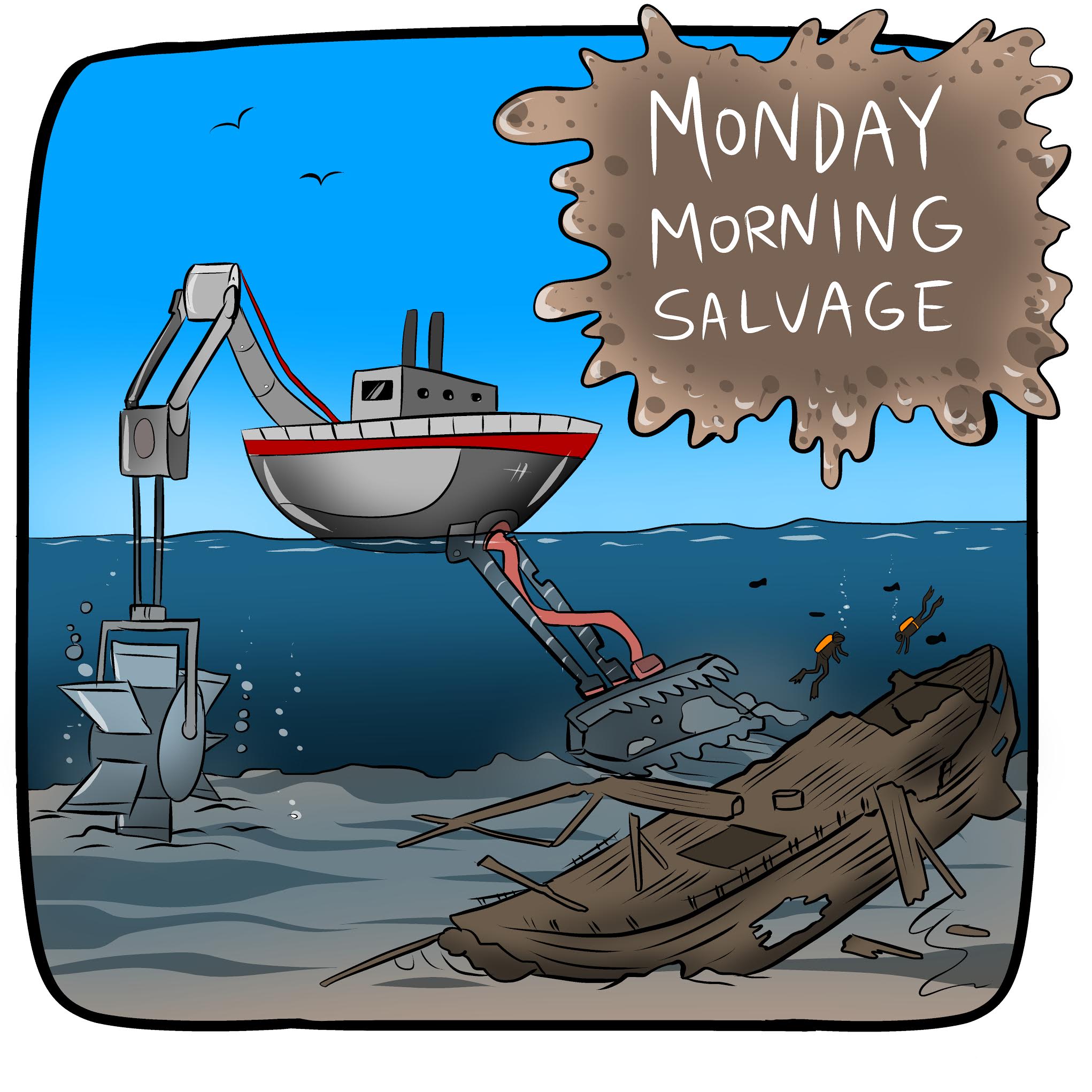
Fog Horn (A Call to Action)
- It’s Native American History Month. Southern Fried Science recognizes that our servers are housed on the occupied land of the Timpanogos people while the majority of our writers live on unceded Powhatan territory. This November, Try Something New: Decolonize Your Mind.
Flotsam (what we’re obsessed with right now)
- Boaters stumble on massive Caribbean “gyre” of plastic garbage. “Gyre is in quotes because I’m almost certain that this is debris from the 2017 Atlantic Hurricane season, rather than an accumulation of decades of plastic is a circulating ocean current. It’s still shocking to see.
https://www.youtube.com/watch?v=GSMGKwZBaWM
- The ARA San Juan, one or Argentina’s two diesel-electric submarines, is missing. Search and rescue is mobilizing and there’s hints that the sailors tried to send out a signal Saturday.
- Without a Treaty to Share the Arctic, Greedy Countries Will Destroy It. Cosign.

I’ve been away for 2 weeks, so it’s a super-massive edition of the Monday Morning Salvage!
Fog Horn (A Call to Action)
- There’s still an unimaginable amount of work to do in Dominica and across the Caribbean. Support the Rebuild Dominica Hurricane Relief fund or any of the other funds from our list: How to help our island colleagues in the wake of total devastation.
Flotsam (what we’re obsessed with right now)
- This is such a cool story: A Trail of Rocks Traces Historical Steamship Routes. We can track old steamship routes from rocks scraped out of the furnaces and tossed overboard.
- Former Papua New Guinea Attorney General attacks deep sea mining project. They always pick pictures for these articles that don’t show how much life is right around the vents.
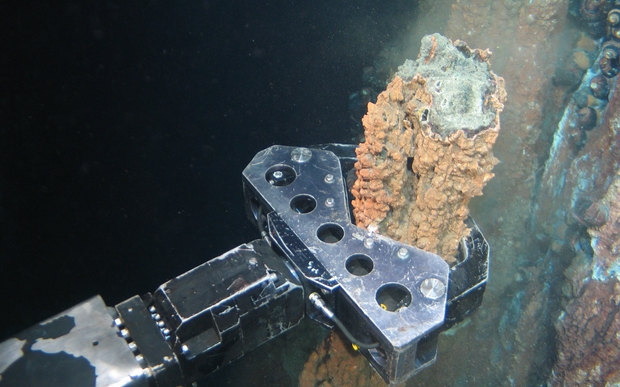
- Whose ecological footprint is bigger: Medics, economists, or environmentalists? Spoilers: conservationists still have an impact, but they sure ain’t number 1.
Jetsam (what we’re enjoying from around the web)
- There’s a fresh oil spill in the Gulf of Mexico, and it’s pretty darn huge:
- Some fun from Deep Sea News: When real-life marine biologist and mom goes to sea, she takes the octonauts with her.
- This is fine: Report on U.S. Marine Sanctuary Oil Drilling Sent to White House, Not Released to Public. This is totally fine: Trump Administration Proposes Largest Oil and Gas Lease Sale in U.S. History.
- Alaska’s Oyster Farmers Are Filling an Acidification-Driven Void. The state’s oyster farming industry is gaining ground as growers elsewhere struggle. From Hakai Magazine, which is great.
- Nature is one of the most under-appreciated tools for reigning in carbon. From Anthropocene, which is fast becoming my favorite environmental print magazine. Sorry, Orion.
- Thousands of penguin chicks starve in Antarctica.
Hey, Andrew, how about you give us at least *some* good news today? Ok, fine.
Most people from oyster-producing regions like the Chesapeake can attest to the fact that oysters are important the the social fabric of the community. In many towns that date back to the colonial era, oyster shells literally line Main Street and form the foundation of the town. In others, they form the basis of a modern-day bar scene boasting of “merroir” of the oysters alongside terroir of the wine. When the ecosystem around these kinds of places changes (think warming waters, acidified waters, introduced species who also love oysters), the resource underpinning this aspect of culture and heritage can be threatened. What does that mean for the humans so connected to the briny bivalve?
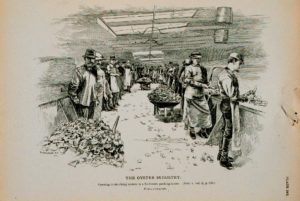
Last week I had the good fortune of attending the NC Oyster Summit, hosted by the NC Coastal Federation in the Museum of Natural Sciences. We talked about the wonders that oyster restoration and aquaculture development can do for water quality, economic development, and taste buds. We enjoyed the demonstration of ‘merriore’, or the taste of the sea that lends a particular flavor to each oyster that captures the ecosystem it grew in. Yet, the fact that stuck with me most is that despite all of these wonderful celebrations of the oyster for the health and well-being of NC’s coastal communities, funding cuts of around 40% to the Department of Marine Fisheries mean that a large portion of the Albemarle Sound remains closed to harvest or aquaculture because there are no staff to check those oysters for public health risks.
The “Administrative Closure” of the most northern stretches of the state’s prized Albemarle-Pamlico estuary system is a worrying precedent in many ways that highlight how leadership withdrawal of support for science can trickle down to real economic, environmental, and cultural harm.
Economic flight
Read More “The disastrous feedback of what happens when fisheries funding dries up” »
